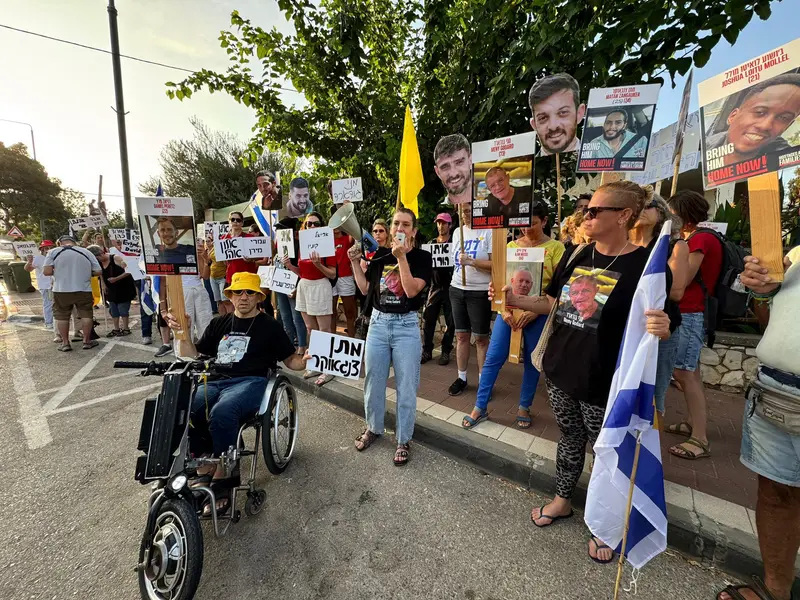Families of Israelis still held hostage in Gaza intensified their protests this weekend, targeting the homes of senior government ministers. Demonstrators accused officials, including Defence Minister Israel Katz and Minister Avi Dichter, of shirking responsibility and failing to prioritize a ceasefire deal that could secure the captives’ release.
Carrying megaphones and placards, relatives stressed the urgency of negotiations. “On day 688, my son—a soldier sent to defend this country with faulty equipment—is still trapped in Gaza’s tunnels,” shouted the father of hostage Nimrod Cohen. He condemned Katz directly, urging him to act as a “defense minister” rather than a “minister of war.”
Outside Dichter’s residence, Michal Lavie, sister-in-law of hostage Miran, questioned the government’s moral accountability: “Why are you hiding? Where is your responsibility toward citizens left to rot in Hamas captivity? What happened to Israel’s founding values—saving lives and leaving no one behind?”

These localized protests echoed a wider public outcry. Earlier on Saturday, thousands gathered in Tel Aviv’s Hostage Square and across the country, demanding that Prime Minister Benjamin Netanyahu’s government secure a deal with Hamas before it is too late.
For some families, the urgency feels existential. Liran Berman, whose brothers Gali and Ziv were abducted on October 7, warned of fleeting diplomatic opportunities: “There is a deal on the table, but deals don’t last forever. We may be facing the last chance to save lives.” Speaking to The Times of Israel, Berman accused Netanyahu of rhetoric without results: “He talks about negotiations, but in practice, he is sacrificing them.”
Critical Perspective:
These protests underscore a widening rift between Israeli families and the political establishment. While leaders maintain a hardline stance on security, relatives frame the government’s inaction as both a moral failure and a strategic misstep, pointing to Israel’s foundational principle of safeguarding its citizens. The tension reveals the government’s dilemma: pursue a deal that risks political backlash or maintain military pressure while hostages remain in peril.


